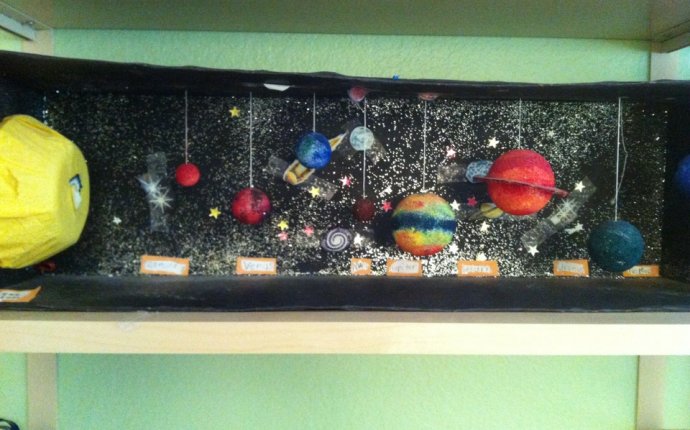
Solar System Project ideas for middle school

Increasing Expectations for Teaching and Learning
Science instruction naturally engages students when it involves hands-on activities and various instructional strategies. Tools such as videos, projects and collaborative activities contribute to keeping students on task. It's important to maintain this engagement. Use this guide to sustain students' interest and support higher levels of learning. Either way you decide to assign these projects, as individual project assignments or small group collaboration, students will meet the high expectations you set for them.
Also, check out the article for evaluating students' work. The ideas on assessing students' projects will ensure fair and thorough evaluations of students' sensational work for this year's science fair or classroom project displays.
A section for homeschool teachers is also included. Help your students exceed the standards!
Middle School Science Projects
Middle school students enjoy challenges in the science classroom. Browse through the articles here for middle school projects that will make this year's science fair shine in comparison to those of other years.
The five articles in this section contain project ideas that teach about gas, liquids, decay, density, mass, crystal growth and plants. A project on the colors of leaves, or chromatography, is also included here.
Ever consider an ongoing class project that culminates in a final project for the science fair? Check out these five articles here. Bean plants, eco-columns, worms and the solar system are the project topics included. (The solar system projects may also be used as a closing project to a solar system unit.)
Are you searching for projects involving energy? These four articles contain project ideas on biomass, hydroelectric power and solar energy. Students will enjoy the tasks presented while learning science concepts with these project challenges.
The articles below include steps for completing projects involving landforms, biomes, gravity, air pressure and cell models. Students will be eager to take on these dynamic projects for exhibiting at the school's science fair.
High School Science Projects
This section includes high school science projects to challenge your science students. Magnets, chemical reactions, water testing, plant fertilizer testing, sports science projects and chemistry projects are some of the topics included here.
Specifically, the first article in this section of four includes projects on creating DNA models and conducting sports, environmental and consumer projects. The articles that follow include projects on testing water from different places, conducting environmental and magnet projects, and analyzing seasonal weather changes.
With the projects in the four articles listed here, students can make silly putty to learn about types of polymers and burn metals to observe signature colors and to create items such as spray cologne and lip gloss. To introduce science engineering to students, try the balsa wood towers project. Or, when teaching high school biology, consider the ecology projects presented in the last article in this section; the projects included involve pond organisms and food webs.
Student projects aren't complete without a student presentation. Allowing students to share their creations with others serves as a reflection on learning for the students. For the teacher, it's an ideal opportunity for assessment of students' work. Use this reference for assessing students' science fair projects. The ideas presented here will contribute to an ideal closing for a dynamic project experience.
Homeschool Science Projects, Ideas and Resources
For the homeschool teacher, search through the articles in this section for additional ideas and resources for science projects. Explore the article describing the options available for science materials and resources on the Internet to increase your materials for hands-on learning. Need to challenge your high school student? Consider the physics, forensic, Oromo language and science engineering curricula presented here. Your child will meet and exceed the national high school science standards with these additions to your science instruction.
Science as a Career
Student interest in a career in the sciences may be sparked in middle school and high school. Engaging, challenging science instruction will contribute to this interest. Raise your expectations for students and let this table of contents be your resource. You can be sure student learning will increase along with the quality of your instruction. High levels of learning will be the final outcome. Put your students up to the challenge!
References
- This is a compilation of articles contained on the Bright Hub Education site. References and resources used by the authors to create each piece of content within the compilation can be found on the individual articles themselves.











